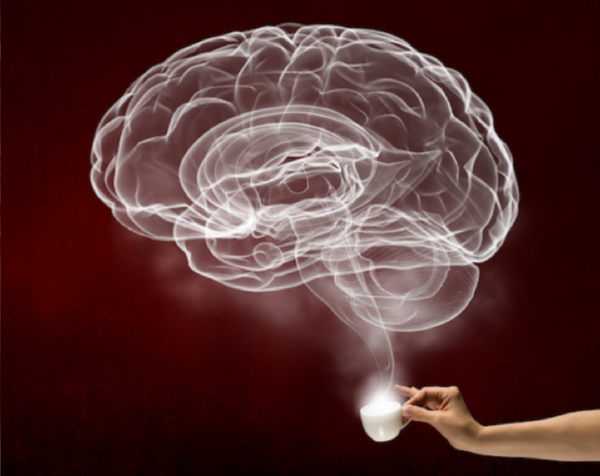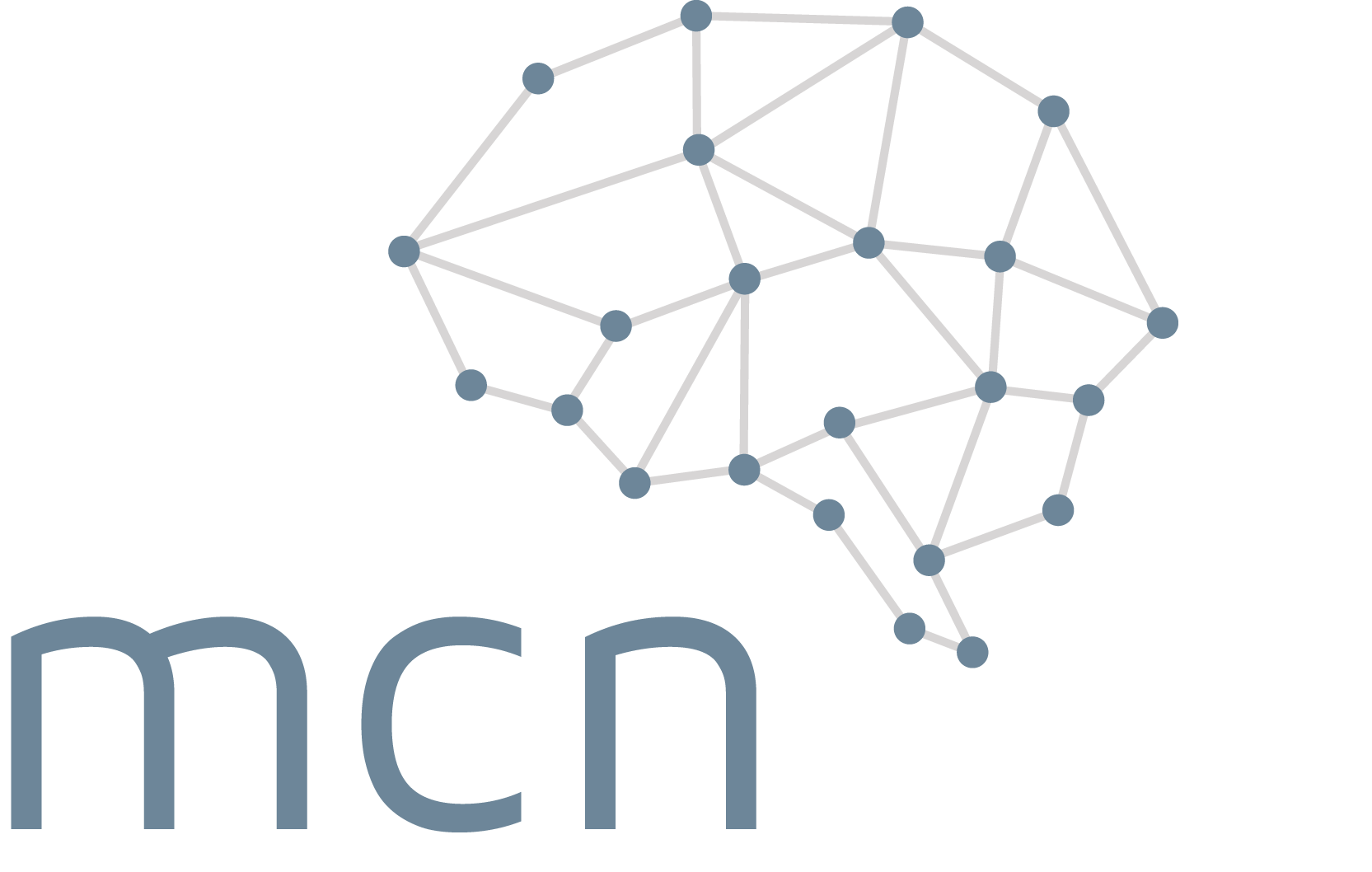Einfluss von Koffein auf Schlafhomöostase, zirkadianen Rhythmus und zerebrale Mechanismen

Circa 80% der Bevölkerung konsumiert Koffein. Bei Erwachsenen konnte wiederholt gezeigt werden, dass akute Koffeineinnahme Wachheit steigert, den Schlafdruck reduziert und den zirkadianen Rhythmus verschiebt. Obwohl Jugendliche besonders anfällig für Störungen des Schlaf-Wach-Rhythmus sind, wurde der Einfluss von Koffein in dieser Altersgruppe noch nicht systematisch untersucht. Zudem blieb bisher weitgehend unerforscht, ob täglicher Koffeinkonsum chronische Veränderungen von Schlaf und Wachheit mit sich bringt und wie sich diese Prozesse in der Struktur und Funktion des Gehirns widerspiegeln.
Aktueller Stand
Zurzeit haben wir drei laufende Forschungsprojekte mit nationalen und internationalen Projektpartnern. Ein vom Schweizerischen Nationalfonds (SNF) gefördertes Projekt untersucht die Auswirkung von akutem Koffeinkonsum auf den Schlaf und die Gehirnfunktionen bei Jugendlichen. Ein zweites SNF-Projekt untersucht mittels EEG und MRT den Einfluss von habituellem Koffeinkonsum auf die Schlaf-Wach-Regulation sowie die neuronale Plastizität bei Erwachsenen. Zudem hat Yu-Shiuan Lin kürzlich ein SNF-Doc.Mobility Stipendium erhalten und wird in einem PET-MR Projekt der Abteilung «Molekulares Neuroimaging» am Forschungszentrum Jülich mitarbeiten. Das Ziel ist die Untersuchung des gemeinsamen Einflusses von habituellem Koffeinkonsum und chronischer Schlafrestriktion auf die Adenosinregulierung und Neuroplastizität. Die Ergebnisse von allen drei Forschungsprojekten werden fortlaufend publiziert.
Mitarbeitende
MSc Studenten/innen: : Joshua Kistler, Simon Veitz, Maria Grab, Rowena Waldis, Eliane Pflugi, Jana Kopp, Melanie Müller, Onur Can Sütlü
Ehemalige Praktikanten/innen: Miriam Bühler, Sven Leach, Andrea Schumacher, Laura Tincknell, Luisa Mars, Aigerim Abdrahkim, Deborah Logvinski, Fabienne-Noelle Mertz
Kollaborationen
University of Basel, Switzerland
Prof. Stefan Borgwardt
Department of Neuropsychiatry >> Link
Prof. Dr. phil. Oliver Bieri Paravicini and Dr. Francesco Santini
Department of Radiological Physics >> Link
Prof. Katharina Rentsch and Sophia Rehm
Laboratory Medicine >> Link
University of Zurich, Switzerland
Prof. Hans-Peter Landolt
Chronobiology and Sleep Research group, Institute of Pharmacology and Toxicology >> Link
Forschungszentrum Jülich, Germany
PD Dr. med. David Elmenhorst
Molecular Imaging group, Institute of Neuroscience and Medicine (INM-2) >> Link
University of Vienna, Austria
Prof. Christopher Gerner and Dr. Samuel Meier
Department of Analytical Chemistry >> Link
Massachusetts General Hospital, USA
Prof. Hsiao-Ying Wey (Monica)
Wey Lab, Athinoula A. Martinos Center for Biomedical Imaging >> Link
Finanzierung
2022 – Freiwillige Akademische Gesellschaft, Switzerland (Yu-Shiuan Lin, Jakob Weber, Carolin Reichert)
«Innovative paraxanthine ELISA to quantify caffeine metabolism in daily caffeine consumption»
2021 – SNSF Postdoc.mobility fellowship grant (P500PM_203148; Yu-Shiuan Lin)
«In vivo Characterization of the Adenosine-Dopamine Interactions using PET/MRI».
2021 – UPK Basel Forschungsförderungsfond (Yu-Shiuan Lin, Carolin Reichert)
«Caffeine and Reinforcement Learning: Characterizing Adenosine-Dopamine Interaction».
2020 SNSF Doc.mobility fellowship grant (P1BSP3_191725; Yu-Shiuan Lin)
«The Influence of Chronic Caffeine Consumption and Sleep Restriction on Adenosine and Brain Morphometry in Humans: A PET-MR Study».
2018 – 2019 SNSF Marie Heim-Voegtlin grants (Carolin Reichert)
«Caffeine-induced effects on sleep, cognitive performance, and underlying cerebral correlates during adolescence».
2016 – 2019 SNSF project (SNF- 320030- 163058; Carolin Reichert, Janine Weibel, Yu-Shiuan Lin)
«Influence of Caffeine Consumption on the Human Circadian System: Neurobehavioral, Hormonal and Cerebral Mechanisms».
Publikationen
Fachartikel
Lin, Y.-S., Lange, D., Baur, D., Pierling, A., Elmenhorst, E.-M., Neumaier B., Bauer A., Aeschbach, D.,
Landolt, H.-P., Elmenhorst, D. Repeated Caffeine Intake Suppresses Cerebral Grey Matter Responses to
Chronic Sleep Restriction in an A1 Adenosine Receptor-Dependent Manner. bioRxiv,
2023.2007.2023.550201, doi:10.1101/2023.07.23.550201 (2023).
Lin, Y.-S., Weibel, J., Landolt, H.-P., Santini, F., Slawik, H., Borgwardt, S., Cajochen, C. & Reichert, C.
F. Brain activity during a working memory task after daily caffeine intake and caffeine withdrawal: a
randomized double-blind placebo-controlled trial. Scientific reports 13, 1002, doi:10.1038/s41598-022-
26808-5 (2023)
Lin, Y.-S., Weibel, J., Landolt, H.-P., Santini, F., Garbazza, C., Kistler, J., Rehm, S., Rentsch, K.,
Borgwardt, S., Cajochen, C., & Reichert, C. F. (2022). Time to Recover from Daily Caffeine Intake. Frontiers
in Nutrition, 8. https://doi.org/10.3389/fnut.2021.787225. DOI..
Weibel, J., Lin, Y.-S., Landolt, H. P., Berthomier, C., Brandewinder, M., Kistler, J., Rehm, S. Rentsch, K. M., Meyer, M., Borgwardt, S., Cajochen, C.Reichert, C. F. (2021). Regular Caffeine Intake Delays REM Sleep Promotion and Attenuates Sleep Quality in Healthy Men. J Biol Rhythms, 7487304211013995. doi:10.1177/07487304211013995
Lin Y.-S., Weibel J., Landolt H.-P., Santini F., Meyer M., Borgwardt S., Cajochen C., Reichert C.F. 2021. Caffeine-induced Plasticity of Grey Matter Volume in Healthy Brains: A placebo-controlled multimodal within-subject study. Cerebral Cortex: 31(6):3096-3106.
Reichert C.F, Veitz S., Bühler M., Gruber G., Deuring G., Rehm S.S., Rentsch K., Garbazza C., Meyer M., Slawik H., Lin Y.-S., Weibel J. 2020. Wide awake at bedtime? Effects of caffeine on sleep and circadian timing in male adolescents – A randomized crossover trial. Biochemical pharmacology:114283.
Weibel J, Lin Y.-S., Landolt H.-P., Kistler J., Rehm S., Rentsch K.M., Slawik H., Borgwardt S., Cajochen C., Reichert C.F. 2020. The Impact of Daily Caffeine Intake on Nighttime Sleep: Signs of Overnight Withdrawal? Sci Rep, 11(1), 4668. doi:10.1038/s41598-021-84088-x.
Konferenzbeiträge
Lin, Y.-S., Weibel, J., Landolt, H.-P., Santini, F., Garbazza, C., Meyer, M., Slawik, H., Borgwardt, S., Cajochen, C., Reichert, C. Daily Caffeine Consumption Reduces Human Grey Matter in Hippocampus Independent of Sleep Pressure. Clocks&Sleep, 1, 414–434; doi:10.3390/clockssleep1040033 (2019).
Reichert, C., Veitz, S., Lin, Y.-S., Weibel, J., Garbazza, C., Meyer, M., Slawik, H., Cajochen, C. Evening Caffeine Intake Induces Alertness in Teenagers, but Does Not Affect Melatonin Levels. Clocks&Sleep, 1, 414–434; doi:10.3390/clockssleep1040033 (2019).
Weibel, J., Lin, Y.S., Landolt, H.-P., Garbazza, C., Meyer, M., Slawik, H., Borgwardt, S., Cajochen, C., Reichert, C. The Effects of Repeated Daytime Caffeine Intake and Its Cessation on Nighttime Sleep. Clocks&Sleep, 1, 414–434; doi:10.3390/clockssleep1040033 (2019).
Lin, Y.-S., Weibel, J., Landolt, H.-P., Müller, F., Santini, F., Garbazza, C., Meyer, M., Slawik, H., Borgwardt, S., Cajochen, C., Reichert, C. Habitual daily caffeine consumption and its cessation changes human grey matter density independent from the effect of cerebral blood flow: a multimodal study. Journal of Sleep Research, Volume 27, Issue S1 (2018).
Reichert, C., Weibel, J., Lin, Y.-S., Garbazza, C., Meyer, M., Slawik, H., Landolt, H.-P., Borgwardt, S., Cajochen, C. Effects of chronic caffeine consumption and caffeine withdrawal on human waking performance, sleep and brain structure. Journal of Sleep Research, Volume 27, Issue S1 (2018).
Weibel, J., Lin, Y.-S., Landolt, H.-P., Garbazza, C., Meyer, M., Slawik, H., Borgwardt, S., Cajochen, C., Reichert, C. Influence of habitual caffeine intake and its withdrawal on circadian phase and nap sleep in the evening. Journal of Sleep Research, Volume 27, Issue S1 (2018).
Weibel, J., Lin, Y. S., Landolt, H. P., Garbazza, C., Meyer, M., Slawik, H., Borgwardt, S., Reichert, C., Cajochen, C. Influence of Long-Term Caffeine Consumption and Its Withdrawal on Subjective Sleepiness, Vigilance, and Melatonin. Sleep, 41, A71-A71 (2018).


